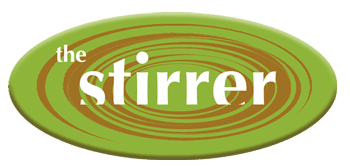



THE DRUGS DON’T WORK 27-04-2007 Feeling depressed? Then don’t reach for the medicine cabinet reckons Birmingham psychologist Dr Mike Drayton. Clair and Alan had always been passionate about each other. They met at university in the 1980’s, and twenty years and two children later, they still enjoyed a close, loving and amorous relationship. Alan is a civil servant who became overwhelmed, made helpless and hopeless by the stress of his job. He became increasingly depressed. Alan went to his GP and was given time off work and prescribed the anti-depressant medication Prozac. This is a member of the family of antidepressant drugs called Selective Seratonin Reuptake Inhibitors or SSRI’s. After a few weeks of rest and Prozac Alan began to feel steadier and more able to cope. But his relationship with Clair took a turn for the worse. After a few weeks of Prozac, his ability to reach orgasm disappeared as did his sex life. Even though he knew that this was likely a side effect of his medication, Alan still couldn't shake the feeling that this was a sign of problems in the relationship. He blamed himself and felt inadequate, worrying that he was letting Clair down. Fearful that Clair would reject him, Alan began feeling irrationally jealous and suspicious of Clair’s friendships. Frustrated, he began to retreat from her. Twenty years of intimacy quickly began to dissolve, and the couple started to drift apart. Alan's experience isn't unusual. About 70% of people taking SSRIs suffer from sexual side effects, the most common being an inability to reach orgasm. If you are depressed to begin with, this is bad enough. However, there is even worse news. Drugs in the Prozac (or SSRI) family can also decrease the ability to feel love, passion and excitement. Drugs like Prozac (SSRI’s) alleviate depression by upping the levels of serotonin in the brain and curbing the production of the neurotransmitter dopamine. Unfortunately, dopamine is also responsible for the feelings of elation and excitement that accompany experiences such as falling in love, achieving a goal or supporting a football team. By suppressing dopamine, SSRI’s block your ability to have these feelings, thus making it harder to enjoy life, feel passionate about life, fall and stay in love. Ironically, all of which are pretty essential to good mental health. So, if you are depressed, what are the alternatives to drugs? There is now a vast body of research to show that Cognitive Behaviour Therapy (or CBT as it’s known) is as effective as medication in treating depression. Moreover, CBT seems to ‘inoculate’ people from developing further episodes of depression in the future by providing the basic skills needed to solve problems and mange their moods. Oh, and, by the way, it does not have any nasty side effects like the one’s described earlier. The idea that underpins CBT is very simple and says that it is not reality that makes people depressed; but rather their perception of reality. For example if we take two people who have been made redundant. One person might think, “I’m on the scrapheap. I’m too old to get another job. It’s the end of my life”. The second one may think, “What a golden opportunity to re-train to do the job I always wanted to. Or maybe I could start a business. I was never happy in the old job anyway. At least I have a future to look forward to now”. Same situation, but two different sets of beliefs. One belief leads to feelings of depression, the other to feelings of excitement. The important point is that the feelings are a result of the belief rather than the situation. It’s very hard to change peoples feelings directly (“Come on, cheer up”, never works does it?), but you can help people to recognize and perhaps change the belief that produces the feeling. This isn’t a Pollyannaish ‘power of positive thinking’ approach, but rather an approach that helps the person develop an accurate and balanced view of their situation with its problems and opportunities Alan had the (wholly inaccurate) belief that because of his sexual difficulties, Clair would reject him. Depression (or anxiety) is usually the result of the person holding a twisted or distorted perception of reality. CBT helps the person untwist their thinking and see reality as it is, with all its good bits and bad bits. It helps someone recognise that they are a fallible human being, as opposed to ‘a failure’ or someone who has to be perfect. Of course, the disadvantage of CBT, for the NHS at least, is that it is comparatively expensive, in the short term, when compared with anti-depressant drugs. There is a shortage of trained therapists and the NHS waiting list for CBT is a long one. Nevertheless, in my view it should be first choice of treatment for people with depression For some people drugs like Prozac have helped them to overcome depression, but the drugs' benefits must be weighed against their risks and unpleasant side-effects. Medication should, in my opinion, be viewed as the treatment of last choice for psychological distress. They are widely over-prescribed which is more to do with under funding of mental health services, resulting in a lack of psychotherapy provision, rather than clinical efficacy. Alan was eventually referred for CBT. He has stopped taking Prozac and his relationship with Clair is back to how it was. Ever been depressed? How did you get over it? Were drugs the answer? Leave a message in the Miscellaneous Message Board. (Contact Dr Drayton at www.opuspsychology.com) |
©2006 The Stirrer